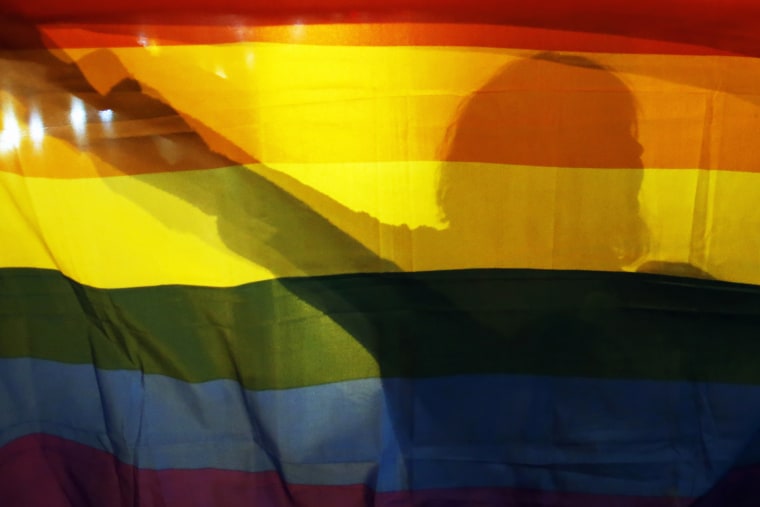A California judge has determined that a private, Christian university was within its rights to suspend and expel a transgender student for defying the school's religious values. At the same time, the judge also found that the school had wrongfully excluded the student from ancillary business operations -- including its library, counseling center, and restaurants -- which are subject to the state’s nondiscrimination law.
Twenty-seven-year-old Domaine Javier, who was born a biological male but has identified as female since childhood, was awarded the minimum statutory damages of $4,000 Friday in a ruling that backed California Baptist University (CBU) on four out of five claims against it.
Javier had sued the university, where she was pursuing a nursing degree, for expelling her on fraud violations in 2011. The expulsion followed her appearance on the MTV reality show, “True Life,” where Javier publicly identified as transgender. Both Javier’s driver’s license, and Social Security records reflect that she is female.
By expelling her, Javier’s attorneys argued, CBU had violated California’s Unruh Civil Rights Act, which protects individuals from discrimination by any business establishment on the basis of age, ancestry, color, disability, genetic information, medical condition, marital status, national origin, race, religion, sex, and sexual orientation. The statute also explicitly states that protections based on sex include “gender, gender identity and gender expression.”
It’s these types of laws that some fear are at risk of becoming irrelevant in the wake of the Supreme Court’s Hobby Lobby decision, which affirmed the right of closely held corporations to opt out of the Affordable Care Act’s contraceptive mandate on religious grounds. If businesses like Hobby Lobby are allowed to deny employees birth control coverage because of a religious objection to contraception, as Justice Ruth Bader Ginsburg pointed out in her dissent, what’s to stop them from opting “out of any law they judge incompatible with their sincerely held religious beliefs?”
Civil libertarians and legal analysts see potential for the Hobby Lobby ruling to reverberate throughout the LGBT community.
In her Friday ruling, Superior Court Judge Gloria Connor Trask concluded that CBU was not a “business establishment” subject to Unruh’s regulations, at least not when it comes to on-campus educational activities.
“Every secular subject is expressly intertwined with a values-based Christian religious component, taught by a Christian,” wrote Trask in her 11-page decision. “Whatever economic benefit the student hopes to gain from the CBU educational experience, CBU clearly intends to send forth an engineer, nurse, businessperson, or teacher who will be able to apply its religious values in the secular world.”
Based on that logic, Trask denied Javier’s claims that the school had violated Unruh in suspending and expelling her. However, Trask did side with Javier on a third claim -- that CBU had violated Unruh in excluding her from restaurants, libraries, online classes, and other ancillary activities operating as “business establishments,” open to the public.
“They are essentially indistinguishable from similar commercial activities in the community,” wrote Trask. “Still, these ancillary programs, although open to the public, do not grant members of the public access to CBU’s faith-based undergraduate program, and do not transform CBU’s faith-based undergraduate program into a business establishment.”
At a time when religious objections to LGBT rights appear to be turning into the next front for the equality movement, Javier and her legal team were happy with their partial victory. Attorney Paul Southwick saw the ruling as a departure from the Supreme Court’s deference to religious exemptions, as seen in its recent Hobby Lobby decision.
“Today is a great day for transgender Californians,” said Southwick in a statement. “[Judge Trask] refused to recognize a Hobby Lobby type exemption for the university, at least with respect to online courses and parts of the university that are open to the public, like its library, counseling center and campus restaurants.”
Southwick said he and his co-counselors plan on appealing the claims they lost, on the grounds that CBU accepts state and federal aid and should be subject to nondiscrimination laws in publicly funded education programs.
As for Javier, she said she was “thrilled” with the outcome.
“It’s such a huge victory for me personally and for other transgender people like me,” said Javier in a statement. “While the monetary award is small, it’s never been about the money for me. It’s about being treated fairly and standing up for what’s right.”
